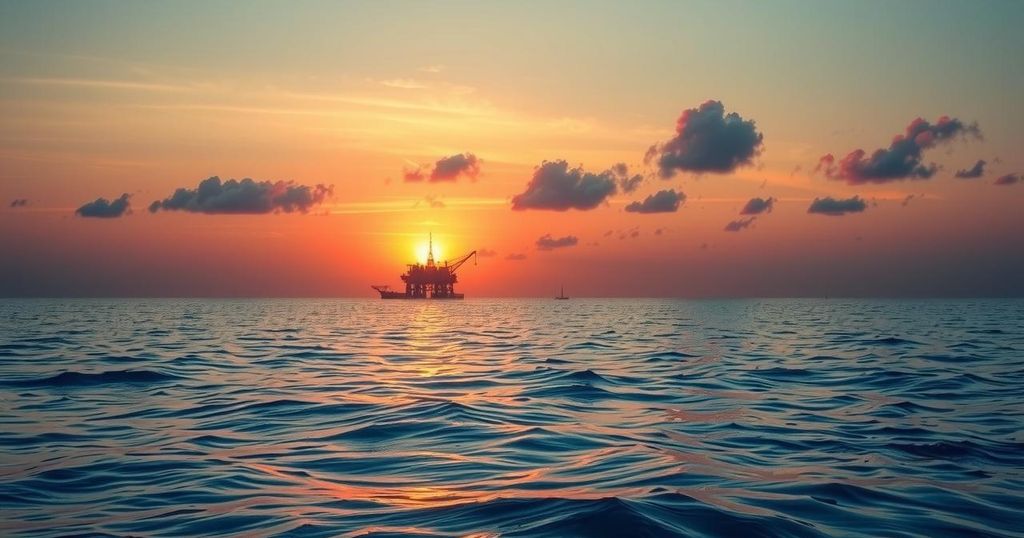Guyana accused Venezuela of violating its waters with a naval vessel, prompting Tehran to label Guyanese President Ali as a provocateur. The U.S. supported Guyana’s claims, while Caricom called for the withdrawal of Venezuelan forces. This incident follows a recent skirmish involving Guyanese troops and alleged Venezuelan pirates, emphasizing ongoing tensions over territorial disputes fostered by oil discoveries in the region.
Guyana and Venezuela have experienced renewed tensions following a complaint from Guyana about a Venezuelan naval vessel’s incursion into its exclusive economic zone (EEZ). The Venezuelan government responded by accusing Guyanese President Irfaan Ali of making provocative and unsubstantiated claims, reiterating that they are protecting their maritime rights, which they assert have not been formally delineated under international law. The region in question holds substantial offshore oil reserves, notably being explored by ExxonMobil.
During a press conference, President Ali stated that he has informed Guyana’s allies, including the United States, of the situation, emphasizing that the contested block is part of Guyana’s sovereign territory. The U.S. State Department later echoed this stance, condemning Venezuela’s actions as violations of international law. Ali further reported that aerial and maritime resources have been deployed to safeguard the drilling operations in the area.
This recent development followed a violent incident a fortnight prior, when armed individuals, presumed to be Venezuelan pirates, engaged in gunfire with a Guyanese military patrol on the Cuyuni River, resulting in injuries to six soldiers, two of whom were seriously hurt. In another communique, Venezuelan President Nicolás Maduro refuted Ali’s assertions, claiming they are misrepresentations intended to stir discord, and suggested that the maritime zone remains unresolved under international law.
In response to Venezuela’s naval activities, Caribbean Community (Caricom) officials have urged Venezuela to withdraw the vessel, reminding both nations of their commitment to maintaining a peaceful Caribbean region per international law. Caricom’s statement stressed that all aggressive encounters are against the spirit of the 2023 Argyle Declaration, which seeks a peaceful resolution to disputes, particularly those under the jurisdiction of the International Court of Justice.
Caricom emphasized the importance of restraint on both sides to mitigate the tensions arising from this ongoing border dispute, which dates back to the 2015 discovery of oil in Guyana’s waters. The conflict flared again under Maduro’s administration, which has sought claims to the Essequibo region, an area comprising approximately two-thirds of Guyana’s territory. Diplomatic interventions have been made by Caricom members, particularly Prime Minister Ralph Gonsalves of St. Vincent and the Grenadines, in hopes of mediating the longstanding territorial disputes.
The recent confrontation between Guyana and Venezuela highlights ongoing territorial disputes and geopolitical tensions stemming from valuable oil resources. Guyana’s assertion of sovereignty and support from international allies bring attention to Venezuela’s provocative actions. Caricom’s call for calm emphasizes the importance of peaceful negotiations to resolve these matters within the framework of international law, stressing the need for restraint and dialogue between the two nations.
Original Source: trinidadexpress.com




